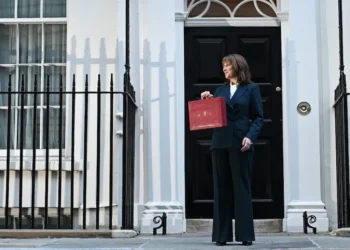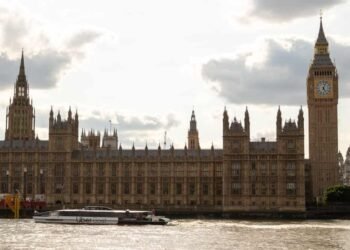The Conservative Party’s recent announcement of a pledge to reintroduce mandatory national service has sparked controversy within the party itself, with a government minister criticizing the way the policy was unveiled.
Steve Baker, serving as a Minister of State at the Northern Ireland Office, revealed that the policy was developed by political advisers and presented to candidates without prior agreement from ministers.
This revelation comes amid criticism that the policy was not thoroughly considered before its announcement, despite earlier statements from ministers denying any plans to reintroduce national service.
Baker, who serves as a Minister of State at the Northern Ireland Office, said, “I don’t like to be pedantic but a government policy would have been developed by ministers on the advice of officials and collectively agreed.”
“I would have had a say on behalf of [Northern Ireland]. But this proposal was developed by a political adviser or advisers and sprung on candidates, some of whom are relevant ministers.”
The policy, if implemented, aims to offer young people the opportunity to engage in either military service or community volunteering, with potential benefits including enhanced job prospects and educational opportunities.
Critics, however, have labeled the initiative as a “desperate” move by the Conservatives, questioning its feasibility and effectiveness.
Opposition leaders, such as Labour’s Keir Starmer, have dismissed the proposal as a gimmick, pointing out the lack of detailed planning and the potential impact on the armed forces’ morale and recruitment.
He said, “I don’t think it’ll work, you’ve seen what military experts, those with experience have said about it, you’ve seen what the government said about it just a few days ago when they were asked.”
He added, “The desperation of this national service policy – a teenage Dad’s Army – paid for by cancelling levelling up funding and money from tax avoidance that we would use to invest in our NHS.”
Despite the internal criticism and external skepticism, the Conservative Party maintains that the national service scheme could provide significant benefits to young people, citing examples from Norway and Israel where similar programs have reportedly been successful.
The party has also proposed that a royal commission would further explore the details of the policy following the general election.
This situation highlights the complexities of policy development within political parties, especially when controversial or ambitious proposals are introduced close to election times.
It underscores the importance of thorough consultation and consensus-building among both policymakers and the public before implementing significant changes.
This move towards compulsion marks a significant deviation from their typical stance on personal liberties.
Tories To Use State Power To Achieve National Service Policy

The plan to fund the national service scheme through measures like cracking down on tax evasion and diverting funds from the UK Shared Prosperity Fund indicates a willingness to use state power to achieve policy goals, diverging from the party’s traditional fiscal conservatism.
The Conservatives argue that national service could enhance job prospects for participants, offering incentives such as fast-tracked interviews for graduate schemes and highlighting national service on UCAS applications.
While this aspect aligns with their interest in promoting economic opportunity, the means of achieving these benefits through state-imposed obligations differ from their usual approach.
The proposal has been criticized by opposition parties and some within the Conservative Party itself, labeling it a “gimmick” and questioning its feasibility and necessity.
This internal and external pushback suggests that the national service policy may not resonate with all elements of the Conservative base, indicating a divide within the party on this issue.
The Conservative Party’s stance on national service reflects a blend of social conservatism, aiming to strengthen societal bonds and national identity, with elements of economic liberalism, such as the promotion of job opportunities for participants.
However, the method of achieving these goals through compulsory participation and state intervention represents a notable shift from the party’s traditional policies and values.























